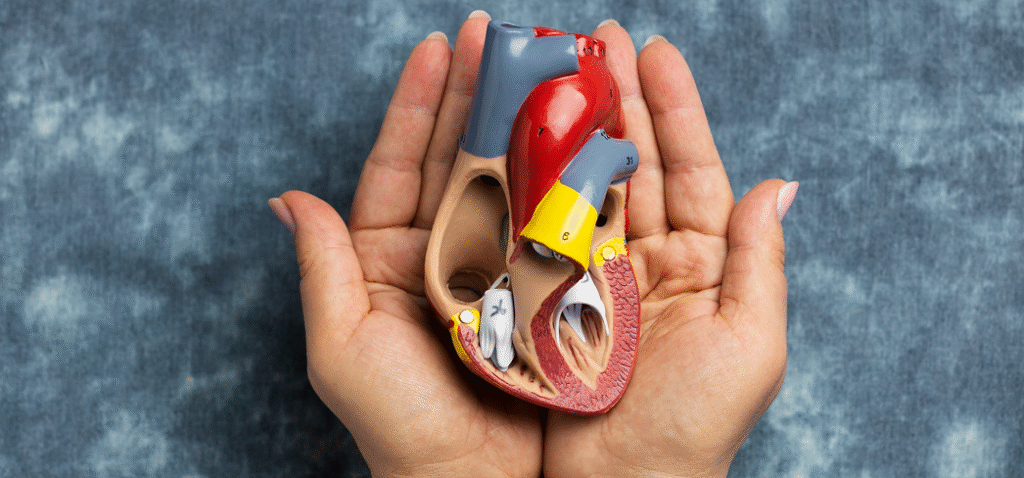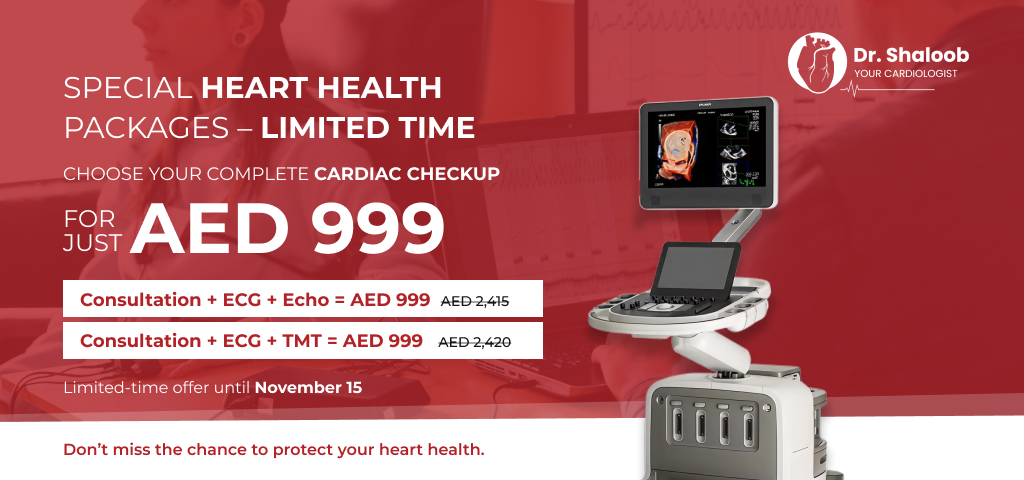Coronary Angioplasty in Dubai by Dr. Shaloob
Restore healthy blood flow to your heart with expert, minimally invasive coronary angioplasty in Dubai by Dr. Muhamed Shaloob a angioplasty specialist in Dubai, board-certified cardiologist in Dubai with global expertise in coronary angioplasty, complex lesions, and high-risk interventions.
At the angioplasty hospital, JTS Medical Centre in Dubai, advanced cath-lab technology and seamless ICU support ensures safe and efficient care.
If you’ve been diagnosed with blocked arteries or you’re recovering from a heart disease, our team offers evidence-based angioplasty treatment with compassionate, clear guidance from first consult to follow-up.
What is Coronary Angioplasty?
Angioplasty (Percutaneous Coronary Intervention, PCI) is a catheter-based angioplasty procedure that opens narrowed or blocked coronary arteries to restore blood flow.
A thin tube is guided through a wrist or groin artery to the heart; a tiny balloon is briefly inflated to widen the narrowing, and a coronary angioplasty stent (usually drug-eluting) is placed to help keep the artery open.
Compared with open surgery, it is less invasive and typically offers shorter angioplasty recovery time.

When is Angioplasty Recommended?
- Acute heart attack to rapidly reopen the blocked artery.
- Persistent or worsening angina despite medications.
- High-risk stress test or coronary angiography showing significant stenosis.
- Selected cases of restenosis or stent failure, sometimes with specialized techniques (e.g., atherectomy).
Angioplasty Procedure in Dubai
- Preparation & imaging: You’ll have blood tests and coronary imaging (angiography). Most patients receive light sedation while awake.
- Access: Local anesthetic is given at the wrist (radial) or groin (femoral). A sheath allows catheters to pass to the heart under fluoroscopy.
- Balloon & stent: A guidewire crosses the blockage; a balloon expands the narrowing. In most cases, a drug-eluting stent is deployed to reduce re-narrowing.
- Medications: An antiplatelet therapy (such as aspirin along with a second agent) for a duration advised to prevent stent clotting.
- Monitoring: Vitals are continuously monitored during and after the angioplasty operation. You may have to stay overnight.
Angioplasty duration: It takes around 30–90 minutes for simple blockage cases; while complex disease may take longer.
Stent Options Explained
There are different options available for an angioplasty stent in Dubai.
- Drug-eluting stents (DES): Coated with medication to limit scar tissue and reduce restenosis; standard in most cases.
- Bare-metal stents (BMS): Rarely used; considered when shorter antiplatelet courses are essential (e.g., high bleeding risk).
- Special techniques: In selected lesions, adjuncts like intravascular imaging, atherectomy, or laser may be used to optimize results.
Safety, Risks & Success
Angioplasty risks in Dubai include bleeding at the access site, vessel injury, abnormal rhythms, contrast reaction or kidney strain, heart attack, stroke, or (rarely) emergency bypass surgery.
With Dr. Shaloob’s expertise and precise technique, angioplasty success rates are high and serious complications are uncommon. Your individual risk depends on age, kidney function, diabetes, lesion complexity, and number of blocked arteries.

Recovery & Follow-up
For an angioplasty recovery in Dubai you need to adhere to the instructions given by the surgeon.
- Hospital stay: Same-day discharge or 24-hour observation for most; longer if performed for a heart attack or complex disease.
- At home: Keep the access site clean and dry; avoid heavy lifting for several days. Expect mild bruising or tenderness.
- Return to routine: Desk work can be started in around a week; strenuous activity after surgeon's clearance.
- Lifestyle & rehab: Cardiac rehabilitation, heart-healthy diet, exercise, and strict adherence to prescribed medicines are key to long-term success after angioplasty treatment.
Angioplasty Cost in Dubai
Angioplasty cost varies by case complexity (number of arteries, stents used), hospital resources, and insurance coverage.
Dr. Shaloob provides a transparent estimate after evaluation, and our team assists with pre-approvals wherever possible.
Why Choose Angioplasty in Dubai With Dr. Shaloob?
- High-risk & complex PCI expertise: Proficiency in multivessel disease, diabetes, bifurcations, and chronic total occlusions.
- Radial-first approach: Wrist access for comfort, quicker mobility, and lower bleeding risk in appropriate patients.
- Evidence-based decisions: Use of intravascular imaging and current guidelines to optimize outcomes.
- Clear, compassionate care: We explain options, set expectations, and support you through recovery.
- Integrated heart care: From prevention to heart failure management, arrhythmias, and advanced imaging, experience comprehensive cardiology under one roof.
Ready to Take The Next Step?
Consult the best angioplasty doctor, Dr. Muhamed Shaloob for precise diagnosis, tailored stent planning, and guided recovery. Also to discuss angioplasty in Dubai, understand your options for angioplasty surgery in Dubai, and plan a safe, effective path back to heart health.
FAQ’S
1) What is angioplasty?
A minimally invasive angioplasty procedure that widens narrowed heart arteries using a balloon and usually a stent to restore blood flow.
2) When is angioplasty recommended?
For heart attacks, unstable or persistent angina, or high-risk blockages confirmed on tests.
3) How long can a person live after angioplasty?
Many people live for decades; longevity depends more on risk-factor control (BP, diabetes, lipids, smoking) and adherence to therapy than the procedure itself.
4) What happens after an angioplasty procedure?
Short monitoring in hospital, access-site care instructions, antiplatelet medications, and a personalized recovery plan, often including cardiac rehab.
5) How risky is angioplasty?
Serious complications are uncommon at experienced centers, but risks include bleeding, vessel injury, heart attack, stroke, contrast reaction, and kidney effects.
6) What is the success rate of angioplasty?
High for suitable lesions; your cardiologist will discuss expected success based on artery location, blockage length, and your overall health.
7) How serious is angioplasty?
It’s less invasive than bypass surgery but still a major heart procedure requiring skilled operators and careful follow-up.
8) How long does angioplasty take?
Typically 30–90 minutes; complex cases may take longer.
9) How long is recovery after angioplasty?
Light activity in 24–48 hours; many return to work within a week (doctor-dependent). Full recovery is individualized.
10) How long do angioplasty stents last?
Stents are permanent implants. The goal is durable patency; success relies on medication adherence and risk-factor control.
11) How long do you stay in the hospital after angioplasty?
Often same-day or overnight; longer for heart attacks or complex interventions.
12) Can you live 20 years after angioplasty?
Yes, especially with optimal lifestyle, medicines, and regular follow-up.
13) What foods should be avoided after angioplasty?
Limit trans fats, excess saturated fats, high-salt processed foods, and added sugars; focus on a heart-healthy diet.
14) How much does angioplasty cost in Dubai?
Costs vary by complexity of the procedure and surgeon’s expertise. We’ll provide an individualized estimate after assessment.
15) Why choose angioplasty in Dubai with our cardiologists?
Experienced angioplasty specialists, modern cath-lab technology, radial-first comfort, and end-to-end cardiac care tailored as per your needs.

